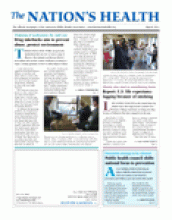Unless you’re shipwrecked on a deserted island, you probably enjoy a handful of close relationships. From spouses to children to friends, parents, siblings and significant others, healthy relationships build self-esteem, improve mental and emotional health and help you live a fuller life.
“Relationships are — not surprisingly — enormously important for health, and there are lots of studies on the biological processes that account for the link between relationships and health,” says psychology professor Arthur Aron, PhD, director of the Interpersonal Relationships Laboratory at New York’s Stony Brook University.
The quality of our personal relationships also has an enormous impact on our physical health, as evidenced by a hefty number of research studies.
“We support each other in getting enough exercise, eating right, flossing — all the things that make for better health can be supported or undermined by close relationships,” Aron says.
In the movie “Cast Away,” Tom Hanks’ character — stranded on an uninhabited island — creates a face on a volleyball and talks to the ball, which he names “Wilson,” as if it were a person. Though fictional and funny, the gesture illustrates something very basic about us: Relationships are important — so important, in fact, that our brains are hardwired to form them.

“Evolution has set us up to be very good in relationships and to make them happen,” says Aron, who also teaches an undergraduate course on close relationships. “We have evolved to form relationships and to keep them together to raise children.”

That said, have you ever wondered why some of your relationships are more effective than others? Researchers have learned a lot in the last 30 years about what makes good relationships tick, and it boils down to just a few things. Unfortunately, most folks are only minimally aware of those elements, Aron says, and therefore aren’t doing everything they could be doing to improve their relationships.
Mind your mental health
Without question, the mental health of all parties is the most important element of a good relationship. If you suffer from depression, anxiety, insecurity or low self-esteem, seek help from a health professional right away, because it’s not just you, but also your relationship, that will suffer.
You can’t always control the stressors in your life, but for your relationships to be effective, try to keep stress to a minimum.
Also, be understanding when others are going through a tough time. Someone who loses her or his job, for example, might behave negatively for a little while. But things should get better eventually.
Keep the lines open
“We just don’t communicate!” is a common refrain in relationships — too common in fact, because after mental health, effective communication is the second most important ingredient in a healthy relationship.
Communication is important because conflicts are inevitable in relationships, and “most people are poorly prepared to deal with them well,” Aron says.
But there’s plenty of help out there. If you’re planning to wed, take advantage of the preparation courses offered through places of worship or community programs.
If you are already in a relationship, think about registering for a weekend seminar or marital enrichment course, often offered through churches, synagogues and community recreation departments.
And if you think the communication between you and your partner needs some extra help, consider couples counseling or marital therapy.
Watch for unhealthy relationships
Not all relationships are going to be perfect all the time, but for the most part, a good relationship makes you feel secure, happy, loved, respected and free to be yourself. If you are in a relationship that makes you feel fearful, humiliated or controlled, or are a victim of physical, emotional or sexual abuse, call 911 or contact the National Domestic Violence Hotline at 800-799-7233.
Learning to recognize unhealthy relationships should start early. The Centers for Disease Control and Prevention’s Choose Respect initiative, online at www.cdc.gov/chooserespect, is available to help teens learn how to make decisions about relationships with their friends, family and dating partners.
Build a bridge of support
Support from family and friends is an ingredient that repeatedly surfaces in good relationships. You might need someone to take the kids for the night, or help with carpooling. If you have a support system in place, or live near friends and family, don’t be afraid to ask them for a helping hand, a sympathetic ear or advice.

Photos courtesy iStockphoto. Bottom right photo by Aldo Murillo.
“All relationships require effort and attention,” Aron says. “Sometimes that effort and attention is automatic, such as with an infant. Beyond what is automatic, for most relationships, we usually need to put attention and effort into them, and it pays off.”
>> For more relationship tips, visit www.cdc.gov/violenceprevention
- Copyright The Nation’s Health, American Public Health Association









